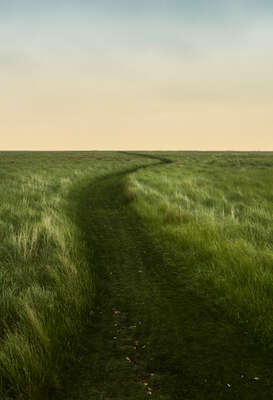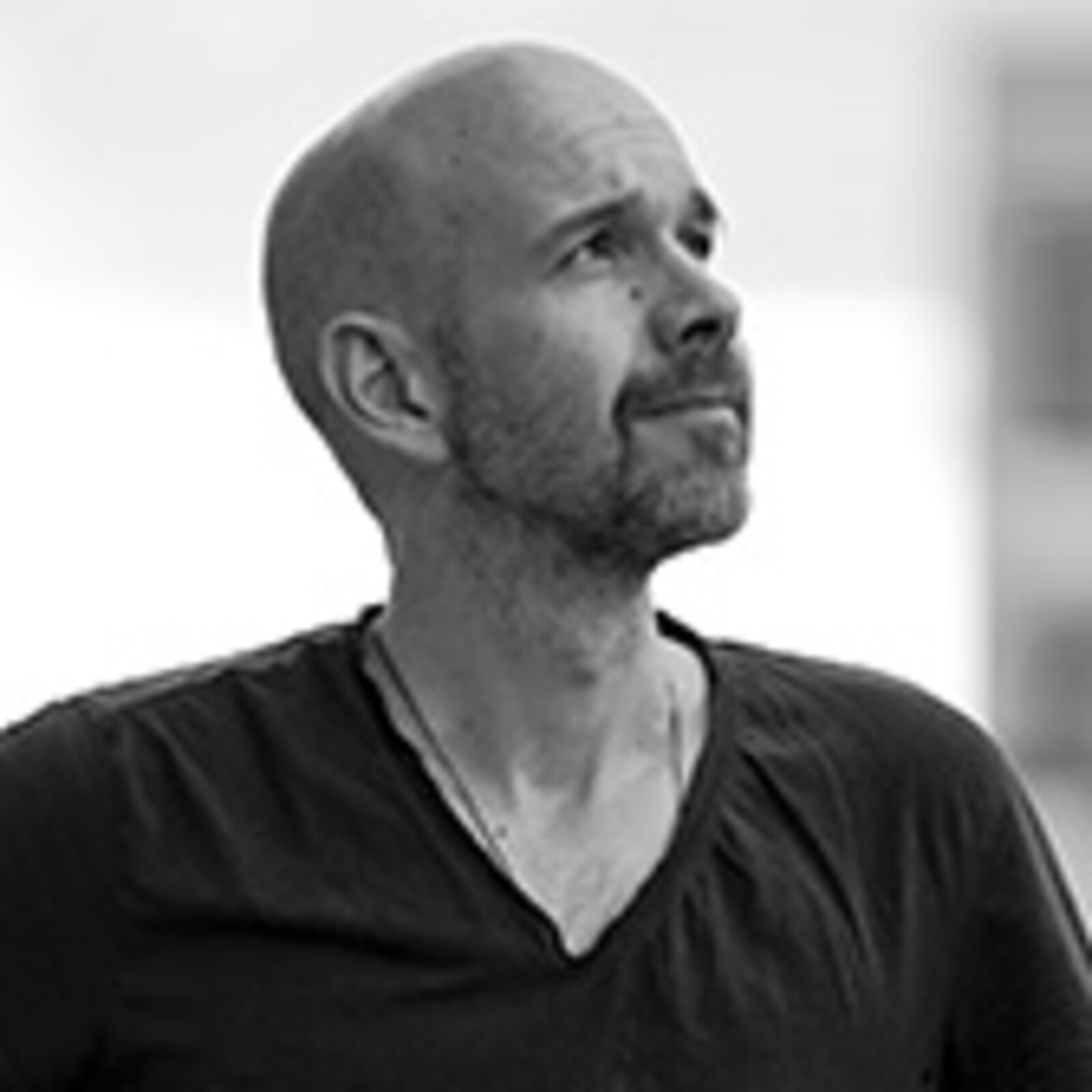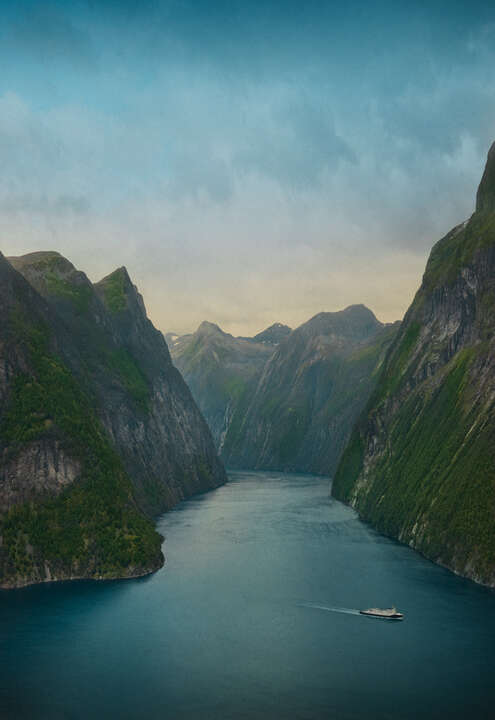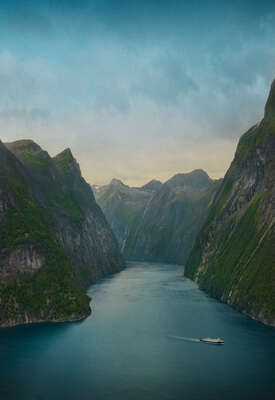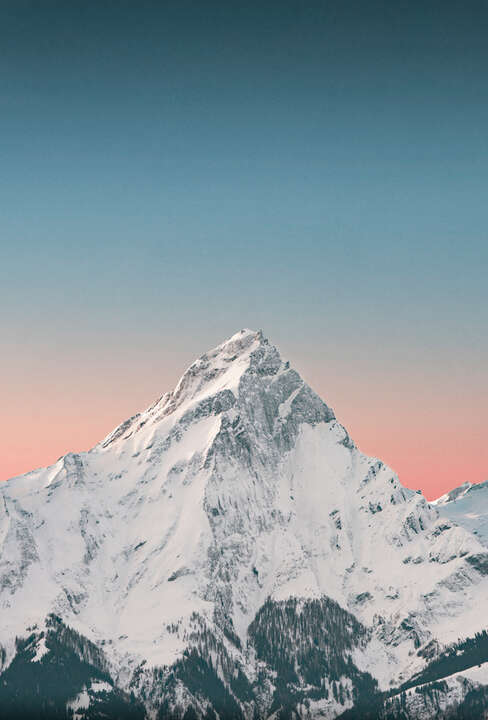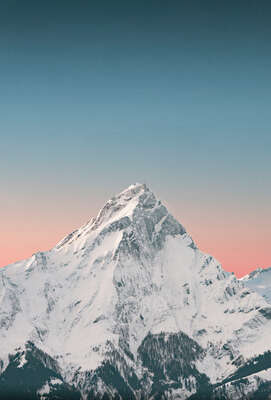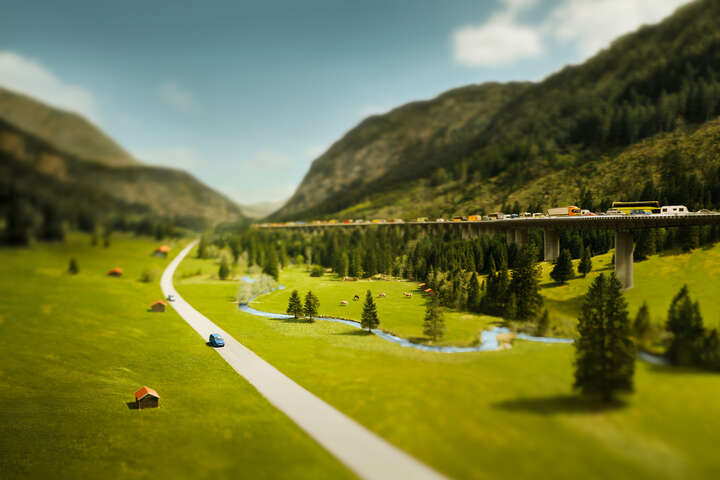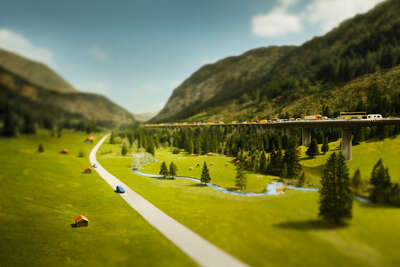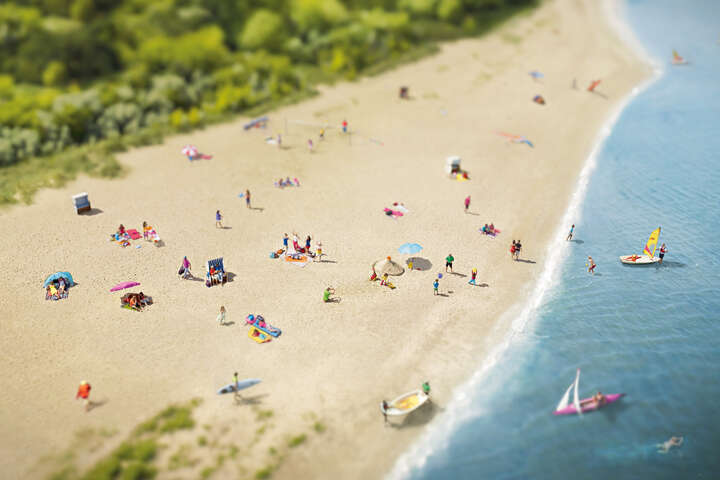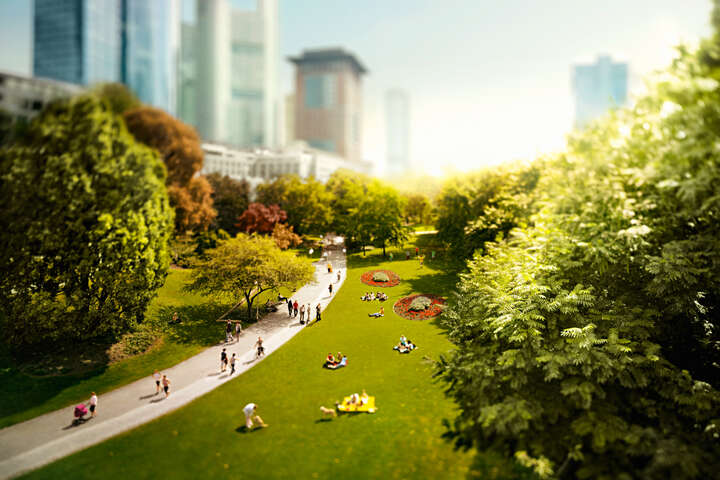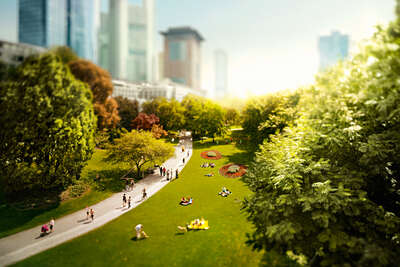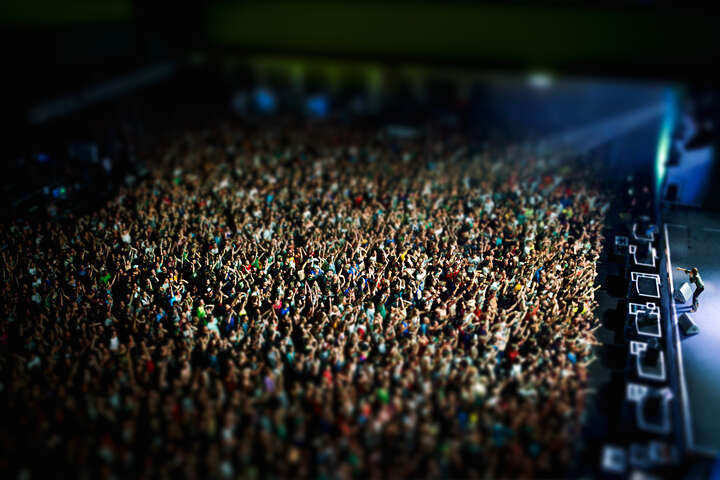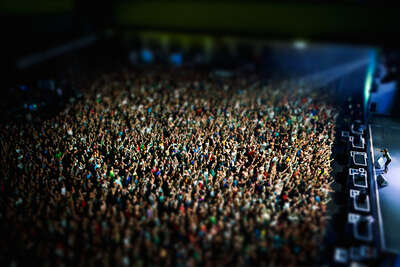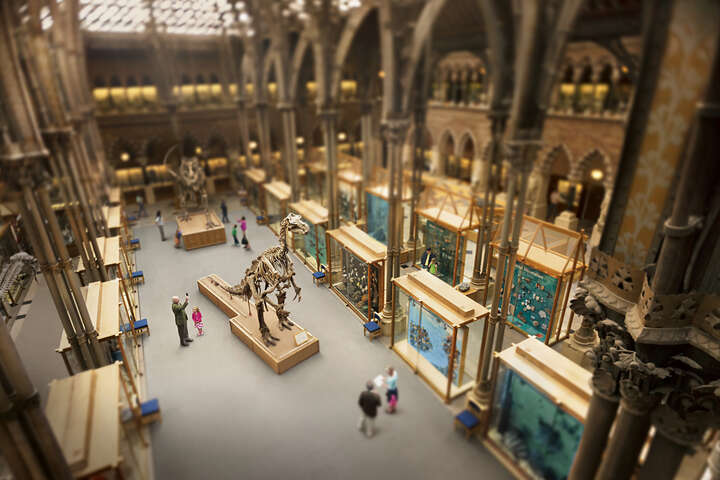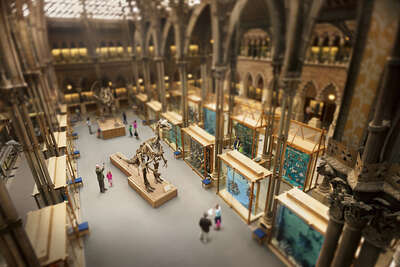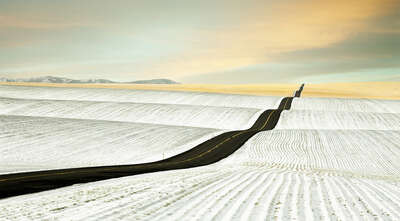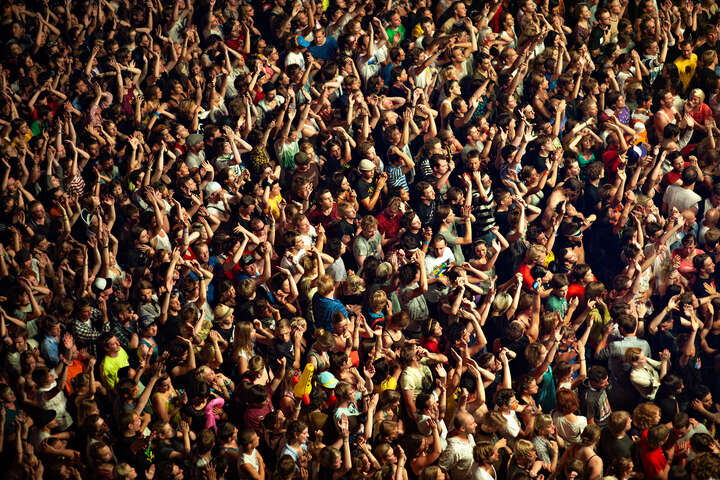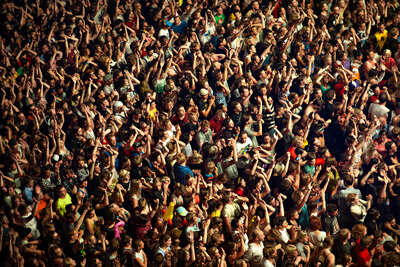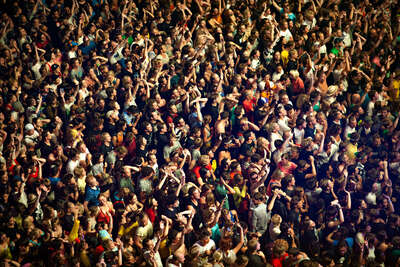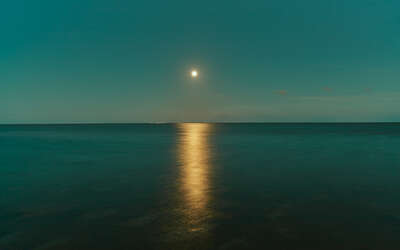Introduction
The motifs in Christian Schmidt's photography appear very small, almost as if they were toys, but in reality they’re wide landscapes, huge halls and large squares. The photographs leave a lasting impression on the viewer thanks to the Stuttgart-based photographer’s great artistic and technical skills. Schmidt plays with perceptual inclinations and makes big things seem small to the human eye. A mountain or valley landscape appear to be a set up for a model railroad, the natural history museum in Oxford becomes an incredibly detailed model kit. Schmidt brings experimentation with sharpness and blurriness to new heights and creates an effect that gives his series its own unmistakable style. His photographs become symbols. He takes his location’s content diversity and condenses it into the bare essentials, which detaches the photos from their actual sites and generalizes them into something more universal. A park in Frankfurt then can be a park in any big city with skyscrapers.
Creating these photos takes a great deal of work and requires a lot of preparation. Carefully, Schmidt selects the locations for his series and always makes sure that his motifs correspond to the expectations of his audience. Sometimes he uses 50-meter-high telescopic platforms to find the right perspective. The bird's-eye view is essential for staging his motifs. Only from such heights can he achieve his miniature affect. But the most important tool for creating this unique effect is his large format tilt shift camera, which he uses to shift focus planes. Doing this he manages to avoid the usual perspective and when it comes to the common practice of achieving the greatest possible depth of field, well, he does the opposite. Using this method, he is able to stage large motifs as if they were tiny and very close to the viewer's eye. He plunges the background and foreground in blurriness, shrinking the scenes through the camera and giving them an unusual atmosphere.
For more than 20 years Christian Schmidt has been active as a photo artist. His passion for photography began when he found old black and white family photos taken by his grandfather. As a teenager, Schmidt set up his first photo lab in his garage and decided to make photography his career. He has always been fascinated by wide landscapes, but also portraiture and product photography. He tells stories by visually reducing his motifs and thereby questioning our habits of perception. His works have been exhibited internationally and awarded several prizes. The Lürzer's Archive ranked him among the 200 best photographers in the world several times. He has also been frequently recognized at the Photo Annual Awards in New York and at the Prix de la Photographie in Paris.
Quote:“To practice photography is to take a real moment in time and capture it before it quickly dissolves into the past. Tilt-Shift photography takes this moment from apparent reality and transforms it into its own miniature world..."
Bio
| 1970 | born in Göttingen |
| Lives and works in Stuttgart |
